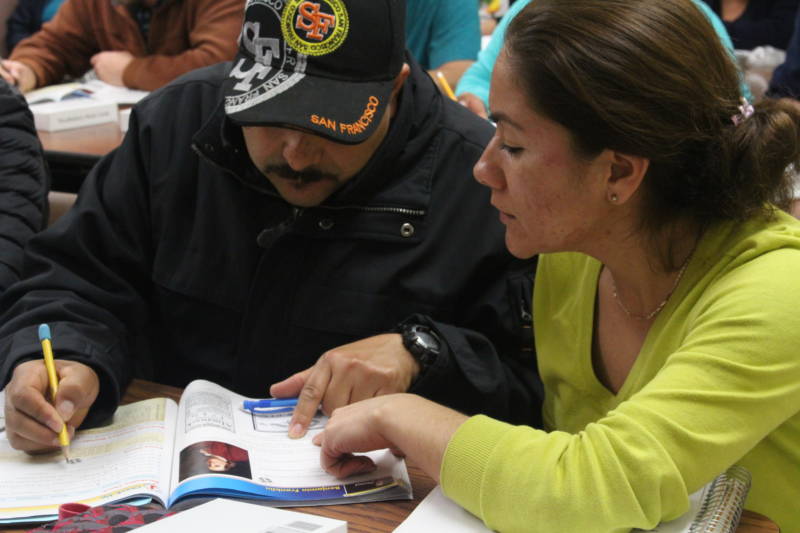Update Oct. 30, 2019, 10:20 a.m.:
Immigrant advocates and the city of Seattle filed a lawsuit in federal court in San Francisco on Wednesday, in an attempt to block the Trump administration’s plans to toughen the requirements for fee waivers for naturalization and other immigration applications.
Plaintiffs argue the changes were “arbitrary,” and “will cripple the ability” of many eligible low-income immigrants to become U.S. citizens.
Original story:
Low-income immigrants face a tougher road to fee exemption when applying for citizenship or green cards under a Trump administration rule issued Thursday. The move could prevent hundreds of thousands of eligible people — including more than 200,000 Californians — from becoming U.S. citizens, critics say.
Under the new policy, scheduled to go into effect December 2, applicants will no longer qualify for fee waivers based simply on the fact that they receive benefits, such as Medi-Cal or CalFresh food stamps.
U.S. Citizenship and Immigration Services will still exempt applicants from filing fees if they can prove financial hardship with other documents, including federal tax transcripts that must be requested from the Internal Revenue Service.
USCIS argues the receipt of food stamps and other federally funded programs should not be considered in fee waiver requests because the income levels used to decide people’s eligibility for public benefits “vary greatly” across the country.
When asked for more information about how much the income level for benefit eligibility differs from state to state, a spokeswoman with USCIS said they did not have that data.

